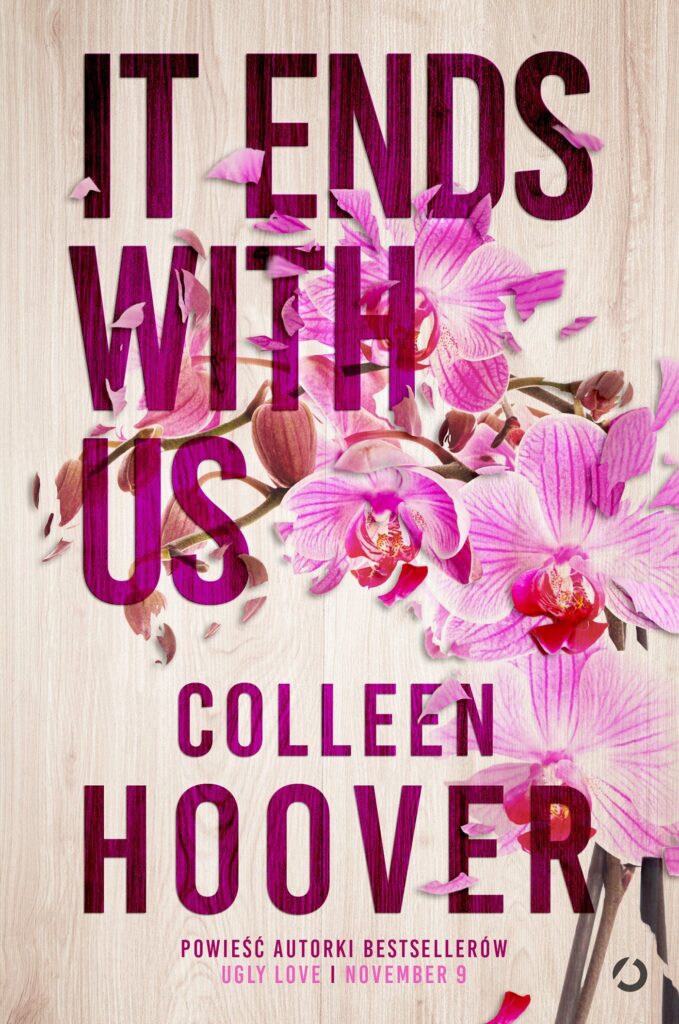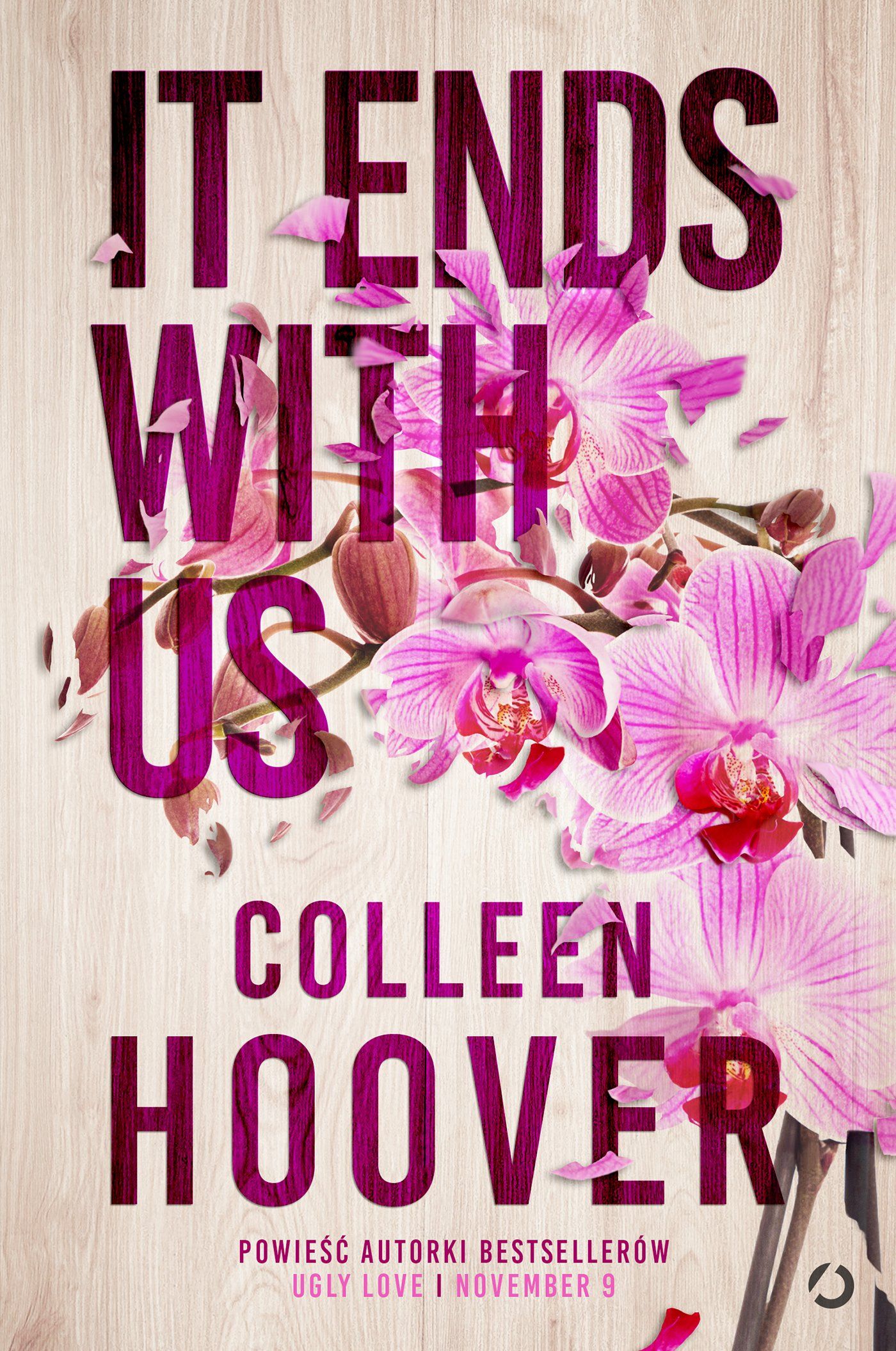
Introduction
Few books hit as hard — or stay as long — in your heart as It Ends With Us by Colleen Hoover.
What begins as a passionate love story quickly turns into a heart-wrenching exploration of trauma, courage, and breaking cycles of abuse.
Published in 2016, this novel became a global phenomenon, topping bestseller lists and inspiring millions of readers to talk about topics often left unspoken — domestic violence, self-worth, and emotional healing.
Colleen Hoover, known for her emotionally charged storytelling (Reminders of Him, Verity, Ugly Love), delivers her most powerful work here. Her writing is raw and empathetic, blurring the line between romance and real-life reflection.
If you’ve ever loved deeply, been hurt deeply, or struggled to choose yourself — It Ends With Us will speak directly to your soul.
Genre
It Ends With Us is a romance drama and contemporary fiction novel with strong elements of psychological realism.
While marketed as a love story, it’s more accurately a story about self-love, resilience, and the painful process of letting go.
Hoover’s tone is deeply personal, conversational, and emotionally honest — making readers feel like they’re living inside the protagonist’s heart.
Plot Summary
The Beginning: Lily Bloom and New Beginnings
Lily Bloom has just moved to Boston, hoping to start fresh after her father’s death. Her childhood wasn’t easy — she grew up watching her father abuse her mother, which left deep scars.
One night, she meets Ryle Kincaid, a charming and ambitious neurosurgeon. Their connection is instant and electric. Ryle seems perfect — confident, intelligent, and caring — though he admits he doesn’t believe in relationships.
Despite warning signs, Lily finds herself drawn to him, believing she’s finally found the kind of love she’s always dreamed of.
The Middle: Love, Flashbacks, and a Face from the Past
As Lily falls deeper for Ryle, we also read her teenage journal entries addressed to Ellen DeGeneres — a coping tool from her younger years.
Through these entries, we meet Atlas Corrigan, a homeless boy she once helped and secretly loved. Atlas represented safety, kindness, and hope during her darkest times.
Years later, Atlas unexpectedly reappears in Lily’s life, reigniting old feelings and forcing her to question her relationship with Ryle.
The Climax: When Love Turns Violent
Ryle’s charm begins to crack. After a shocking incident, he physically assaults Lily. He’s filled with remorse, promising it will never happen again — but it does.
Hoover portrays this cycle with painful realism: Lily torn between the love she feels and the fear that history is repeating itself.
Her mother’s past becomes her present, and Lily must make the hardest choice of her life — to walk away from someone she loves to protect herself and her future.
The Resolution: Choosing Strength Over Silence
Lily finds the courage to end the relationship after discovering she’s pregnant with Ryle’s child. She decides that the cycle of abuse ends with her — for her daughter’s sake.
The novel closes with a bittersweet encounter between Lily and Atlas, symbolizing hope and healing. Though broken, Lily is free — proof that strength isn’t about holding on, but about letting go.
Key Themes & Ideas
- Breaking the Cycle of Abuse – The title itself represents Lily’s determination to stop generational trauma.
- Love vs. Fear – The conflict between what the heart wants and what the soul needs for safety.
- Resilience & Healing – The courage to walk away, rebuild, and rediscover oneself.
- Empathy for Imperfection – Hoover portrays abusers and victims with painful complexity — no one is flatly “good” or “bad.”
- Self-Worth – Understanding that true love never demands suffering.
Character Analysis
Lily Bloom
The heart of the story. A compassionate, intelligent woman whose journey from victim to survivor is both devastating and inspiring. Her name — “Bloom” — symbolizes her growth and rebirth.
Ryle Kincaid
A talented neurosurgeon with deep-seated anger issues and emotional trauma. Ryle’s charm and volatility make him both tragic and terrifying. He’s not written as a villain, but as a broken man trapped by his impulses.
Atlas Corrigan
Lily’s first love and moral anchor. His kindness, loyalty, and quiet strength stand in contrast to Ryle’s volatility. He represents the safe, healthy love Lily deserves.
Jenny (Lily’s Mother)
Her mother’s story mirrors Lily’s — and her strength gives Lily the courage to finally break the cycle.
Memorable Quotes & Explanations
“It stops here. With me and you. It ends with us.”
— Lily’s declaration of freedom and emotional strength. The line that defines the entire book.
“Just because someone hurts you doesn’t mean you can simply stop loving them.”
— A heartbreaking truth about the complexity of abusive relationships.
“There is no such thing as bad people. We’re all just people who sometimes do bad things.”
— Highlights Hoover’s nuanced understanding of human imperfection.
“All humans make mistakes. What determines our character is whether we repeat them or learn from them.”
— A message of accountability and growth.
“I feel like everyone fakes who they really are, when deep down we’re all equal amounts of screwed up.”
— A reflection on vulnerability, honesty, and the masks people wear.
Spoiler Section
📖 Click to reveal spoiler
Personal Insights & Critique
Reading It Ends With Us is like standing in a storm — beautiful one moment, brutal the next. Colleen Hoover doesn’t romanticize pain; she reveals its layers with unflinching honesty.
The story’s greatest strength is its emotional realism. You understand why Lily stays, why she hopes, and why leaving isn’t simple. Hoover’s portrayal of abuse isn’t sensational — it’s deeply empathetic and painfully human.
While some critics argue that the book’s love triangle feels familiar, it’s Lily’s transformation — not her romance — that defines this masterpiece.
If you’ve ever had to make an impossible choice between love and self-preservation, It Ends With Us will feel achingly real.
Who Should Read This Book
- Readers who love emotional, character-driven fiction
- Fans of Colleen Hoover’s contemporary novels
- Anyone interested in themes of trauma, healing, and empowerment
- Women navigating complex relationships or self-discovery
Recommended Next Reads:
It Starts With Us (the sequel), Ugly Love, Reminders of Him, and Verity by Colleen Hoover.
Conclusion
It Ends With Us isn’t just a novel — it’s a movement. It teaches that love should never hurt, that courage can exist alongside heartbreak, and that ending something painful is often the bravest act of all.
Read it if you’re ready to cry, heal, and find strength in vulnerability. Because sometimes, the most powerful love story is the one where you finally choose yourself.
FAQs
1. What is It Ends With Us about?
It’s a romance-drama about Lily Bloom, a woman who finds herself in an abusive relationship and learns to break free, ending the cycle of domestic violence.
2. Who wrote It Ends With Us?
Colleen Hoover, a bestselling author known for emotional, relatable contemporary novels.
3. Is It Ends With Us based on a true story?
Yes — it’s partially inspired by Hoover’s own mother’s experience with domestic abuse.
4. What is the main message of It Ends With Us?
The novel emphasizes self-worth, strength, and the importance of ending generational cycles of abuse.
5. Is It Ends With Us a sad book?
Yes, but it’s also deeply empowering. It will make you cry — and inspire you in equal measure.
Find More Content on BookSummary, Happy Learning!!
Do follow us on Instagram and Facebook to get the latest updates!

